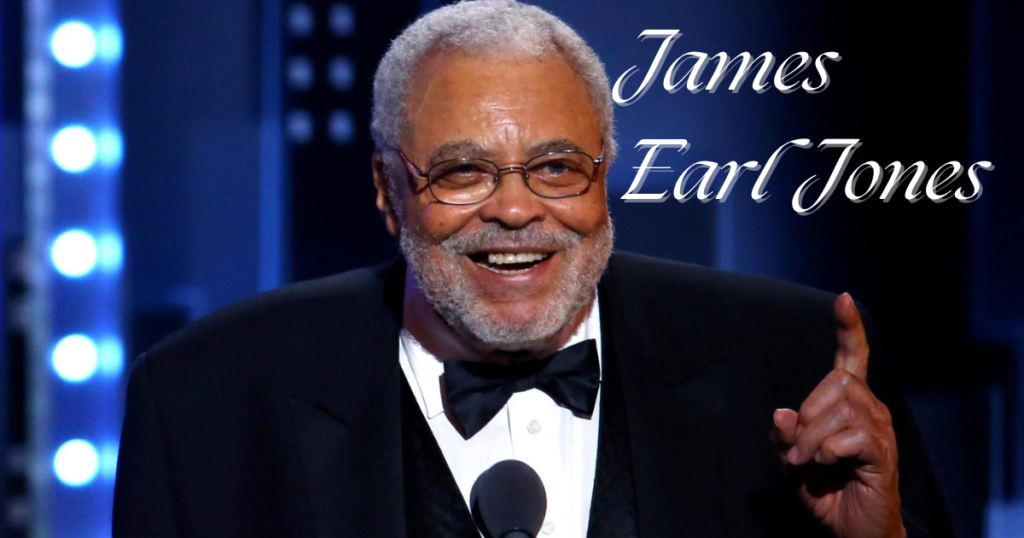James Earl Jones is a name synonymous with powerful, resonant voices and unforgettable performances. From the menacing tones of Darth Vader to the commanding presence of Mufasa, Jones has left an indelible mark on the worlds of film, theatre, and beyond. His career is a testament to the art of acting, voice work, and the sheer ability to capture the essence of a character through the magic of his voice.
Early Life and Beginnings

James Earl Jones was born on January 17, 1931, in Arkabutla, Mississippi. Growing up, he struggled with a severe speech impediment, which led him to shy away from speaking and engage in reading poetry and reciting speeches as a form of therapy. His journey from a quiet, introverted child to a powerhouse of the performing arts is a remarkable story of perseverance and talent.
Jones studied at the University of Michigan, where he initially pursued a career in medicine before shifting his focus to theater. His training at the American Theater Wing and his subsequent work on stage helped him develop his iconic voice and acting skills.
Breakthrough and Iconic Roles
Jones made his Broadway debut in 1957, but it was his role in “The Great White Hope” in 1968 that catapulted him to national fame. His portrayal of boxer Jack Johnson earned him a Tony Award and established him as a formidable talent on stage.
However, it was in the world of film and television that Jones truly became a household name. His deep, commanding voice became instantly recognizable, and his performances left a lasting impact.
- Darth Vader in “Star Wars” (1977): Perhaps Jones’s most iconic role, the voice of Darth Vader became a cultural phenomenon. Despite never donning the suit himself, his voice work brought an intimidating and memorable presence to the character.
- Mufasa in “The Lion King” (1994): Jones’s role as Mufasa showcased his ability to convey warmth and authority. His performance as the wise and powerful lion king endeared him to a new generation and cemented his status as a beloved figure in animation.
- Other Notable Films: Jones’s career spans a diverse range of genres and roles. From his Oscar-nominated performance in “Field of Dreams” (1989) to his work in “The Hunt for Red October” (1990) and “The Exorcist” (1973), Jones’s versatility as an actor is evident.
Awards and Recognition
James Earl Jones’s contributions to the arts have been widely recognized. He has received numerous awards, including:
- Tony Awards: He won two Tony Awards for “The Great White Hope” and “Fences.”
- Emmy Awards: He has won several Emmys for his work on television.
- Academy Award Nomination: His role in “The Great White Hope” earned him an Oscar nomination.
- Honorary Awards: In addition to competitive awards, Jones has received honorary accolades, including the Presidential Medal of Freedom in 2011.
Legacy and Influence
Jones’s impact extends far beyond his impressive list of credits. He has been a trailblazer for African-American actors, breaking barriers and setting standards for future generations. His voice alone has become a symbol of authority, gravitas, and emotional depth.
Beyond his on-screen achievements, Jones’s commitment to his craft and his ability to inspire others have solidified his place as a legend in the industry. His career is a reminder of the power of perseverance and the magic of performance, proving that a distinctive voice and unwavering dedication can leave an unforgettable mark on the world.
Conclusion
James Earl Jones is more than just an actor; he is an institution. His voice has shaped characters and stories, and his performances have captivated audiences for decades. As he continues to work and inspire, Jones remains a towering figure in the entertainment industry, embodying the art of acting and the essence of storytelling. For anyone who appreciates the magic of cinema and theater, James Earl Jones is a name that resonates with profound significance.
